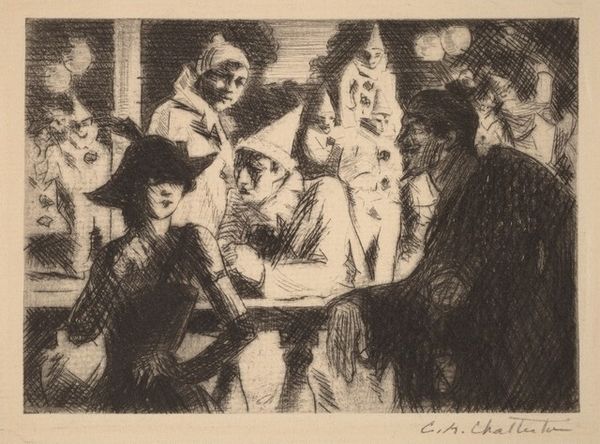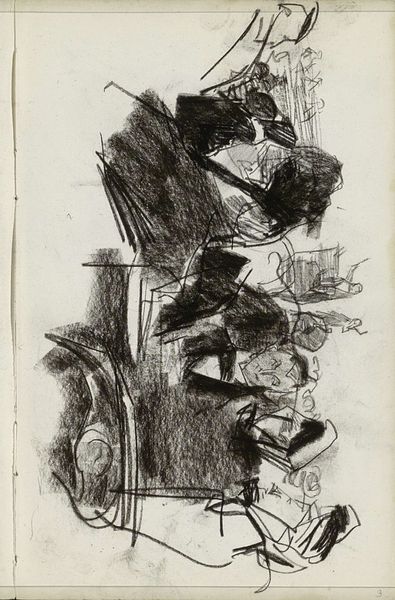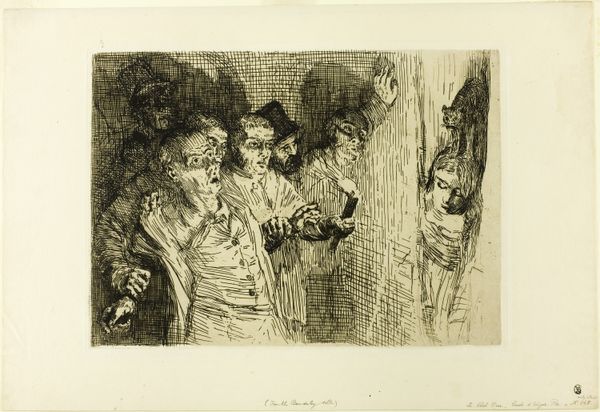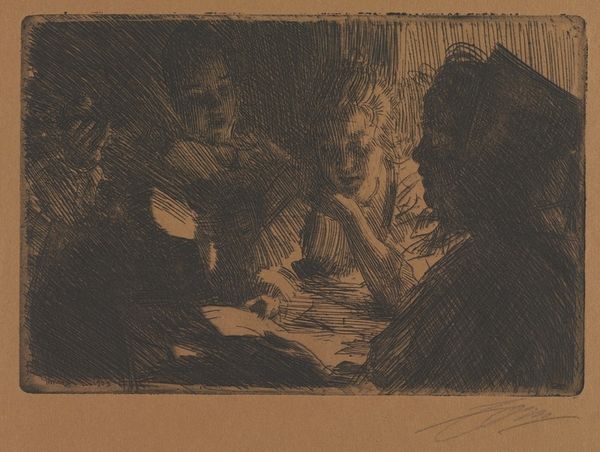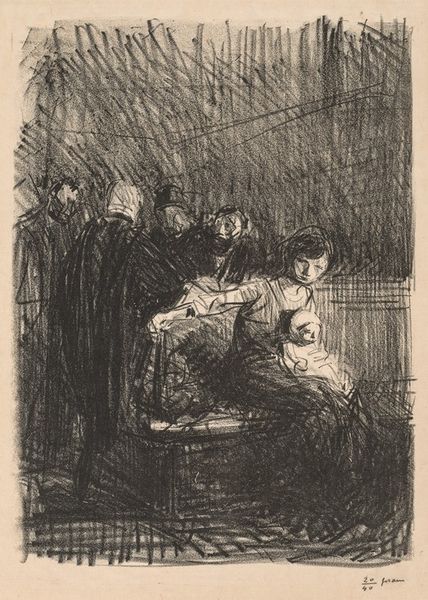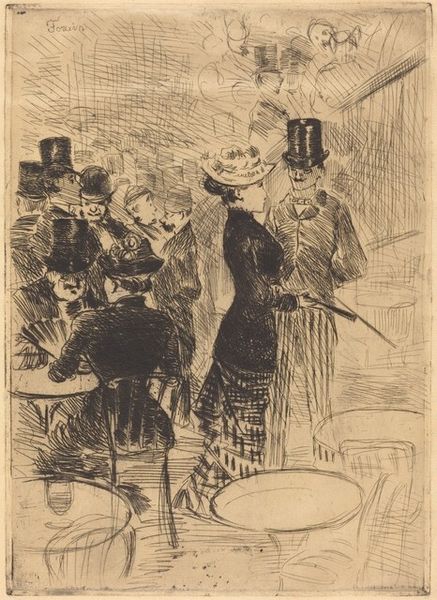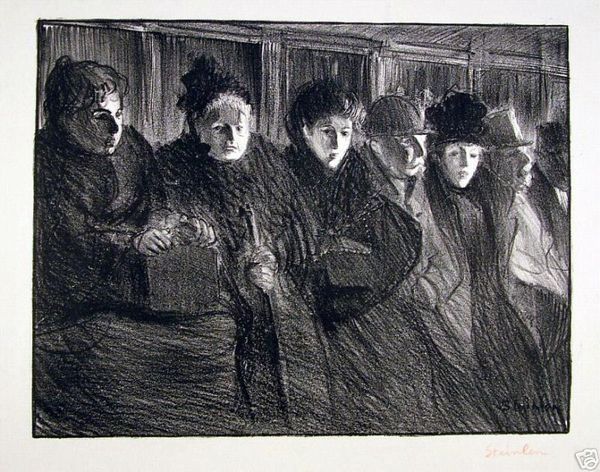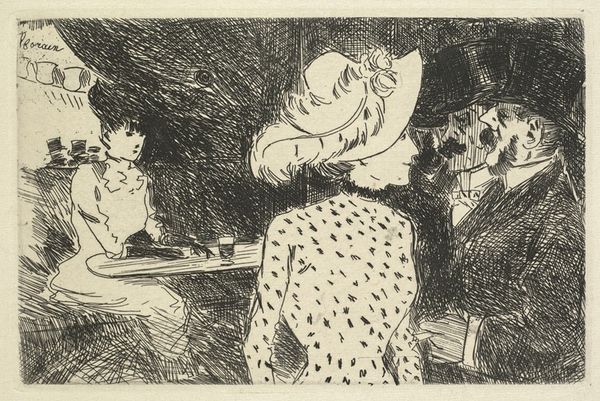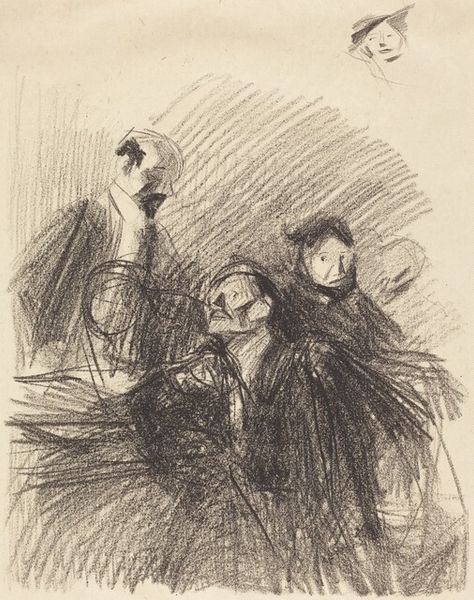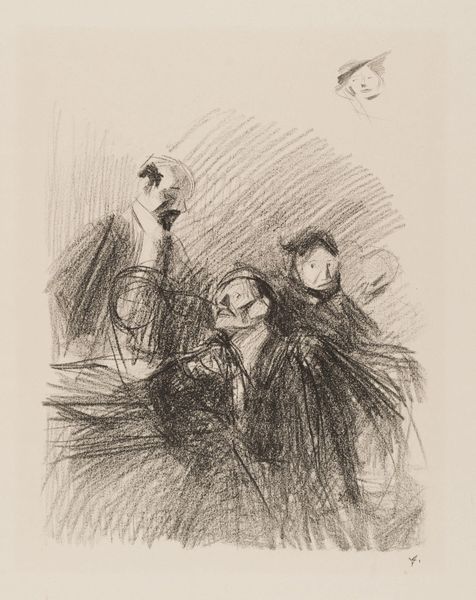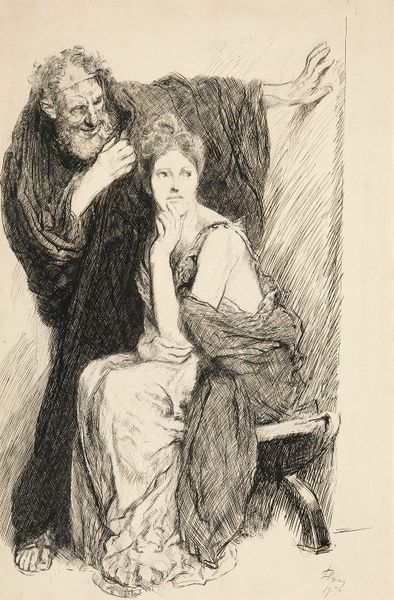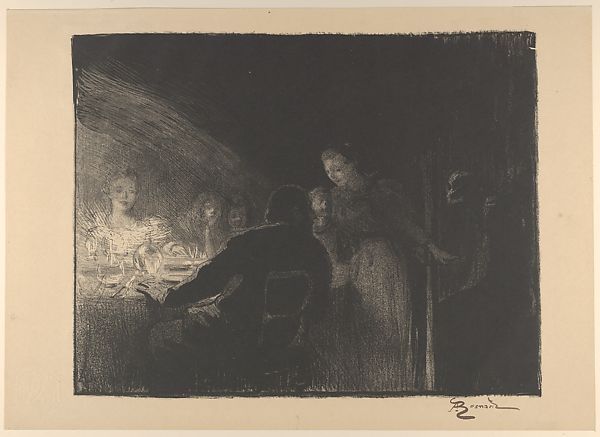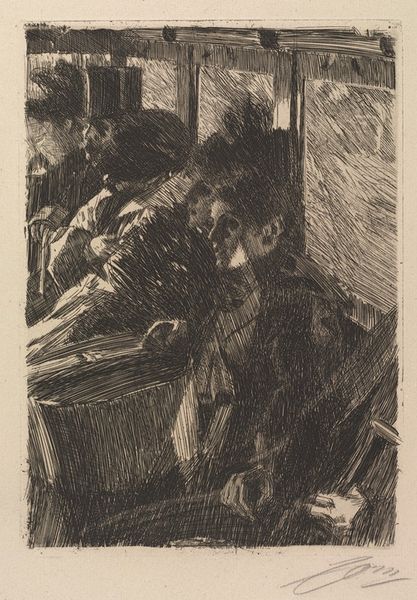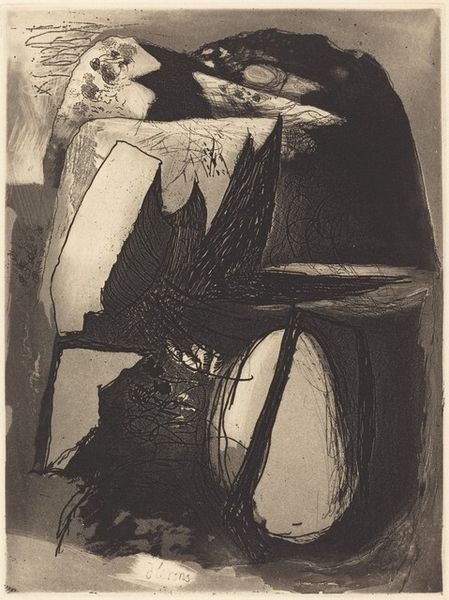
In the upper tier of the theater 1920
0:00
0:00
ilyaefimovichrepin
State Museum of Fine Arts, Nizhny Tagil, Russia
drawing, print, ink
#
portrait
#
drawing
# print
#
pencil sketch
#
ink
#
group-portraits
#
genre-painting
#
mixed medium
#
mixed media
#
realism
Dimensions: 30.5 x 23.5 cm
Copyright: Public domain
Editor: Ilya Repin’s “In the Upper Tier of the Theater,” created around 1920, appears to be a drawing or print, perhaps ink or pencil. I’m struck by how cramped and frenetic the composition feels; everyone's packed together in what feels like a dark, stuffy space. What stands out to you about this piece? Curator: I see the labor, quite literally, etched into the surface. Think about the physicality involved in creating this print. The artist's hand, repeatedly making marks, transferring observation into material form. This repeated process becomes an act of production and an expression in its own right. Who were these people? How much did those seats cost them? Consider that these prints democratized access, reproducing the upper crust for consumption. Editor: That's interesting. I hadn't considered the printmaking process itself as part of the narrative, only how crowded the figures were in the image! Is the way they're grouped purposefully emphasizing the process too? Curator: I think so. What did the artist want the viewer to take from seeing the different kinds of enjoyment? Note also the contrast between those whose faces are more finished in comparison to those sketched. What implications are being made here? Is Repin suggesting a divide between those with material wealth who enjoy theatre in a performative and expressive way versus those above who get mere scraps from it? What power relations are on display? Editor: So, by examining the materials and production, we see commentary about social structures inherent in that theater-going experience. The 'upper tier' implies a literal hierarchy reflected in the image itself! Curator: Precisely! Art isn't just representation, but also material evidence of its production and the context surrounding that production. Editor: That’s a completely different way to look at art. I am very excited about analyzing artworks going forward with that mindset. Curator: Excellent, looking closely reveals what the artist wants the world to know through their artistic rendering.
Comments
No comments
Be the first to comment and join the conversation on the ultimate creative platform.
